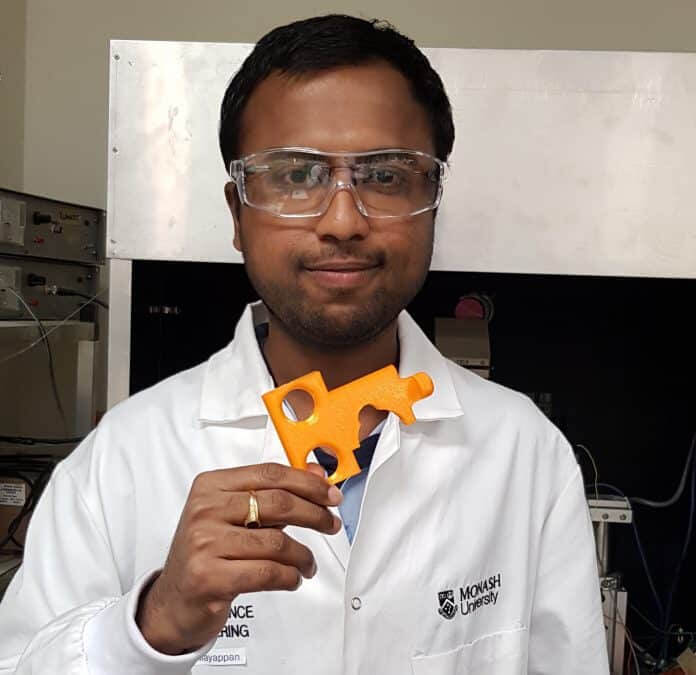
If you’ve been paranoid about touching that door handle in these COVID-19 days – or that lift button or ATM touchpad – there’s now a solution in sight.
Muthu Vignesh Vellayappan, a PhD student in Engineering at Monash University, has invented a device to keep your hands free when you are out and about.
The hand-held device he calls ‘Safety Key’ attaches to door handles and helps you twist them open, so that your fingers make no contact with the surface at all.
“The coronavirus is known to stick around for a few days on steel and plastic surfaces,” Muthu told Indian Link. “While we all practise recommended hygiene procedures and social distancing, the Safety Key can go a long way in stopping the spread of the virus.”
He recommends that you use the device – no larger than a mobile phone – every time you go out, and at your last destination, give it a good wash with regular soap as you wash your own hands.
The cost to produce it? Less than a dollar.
Best of all, if you are interested in owning one, the inventor will send you the specs to create your own.
“The Safety Key is 3-D printed using PLA, a low-cost polymer that is as easily obtainable as it is durable,” Muthu revealed. “If you have access to a 3-D printer, I will send you the G-code to create one for yourself.”
Two copies can be created in a matter of two hours.
The idea for the Safety Key struck Muthu in early March as the COVID scare had just set in, and he saw viral videos of people sneezing and spitting on door handles and inside lifts (allegedly to spread the virus deliberately).
“I wondered if there was a way in which we avoid touching surfaces like door handles, light switches, toilet flushes and hand dryer machines,” he described. “I designed an early model and ran it past my supervisor Prof. Neil Cameron, head of the Department of Materials Science and Engineering at Monash Uni. He encouraged me to continue.”
Muthu designed a few models. “The first one could only open door handles of a particular thickness, and so that had to change clearly. It was also somewhat large in size. With repeated modifications and optimizing, I came up with a design that was satisfactory.”
The entire process from woe to go, took about three weeks.
He printed off 15 copies and gave them out to staff and fellow students to test.
The feedback was encouraging.

Putting the word out on LinkedIn, Muthu began to see interest, such as from Griffith University.
“I’m particularly keen to have COVID front-liners like health workers and security personnel use the device.”
So he’s not looking to patent it?
“The patenting process will take 2-3 months. The impact has to be immediate. The need of the hour is to minimise the transmission of the virus. So I’ve decided to go public with it.”
There is at least one other hands-free device that has been produced recently but it requires the use of the forearm to push the door open and is not portable.
“The design of the Safety Key could be used to make a die for injection moulding,” Muthu observed. “This could easily help in mass production, at very low cost.”
The Madurai lad finished his Bachelor’s degree in India and completed a Masters’ degree in Malaysia before joining Monash in 2017. He is currently months away from finishing his PhD that is based on the design and development of heart patches to replace heart cells damaged in a heart attack.
In 2018 he had won the Audience Choice Award at the nation-wide science communication contest FameLab, describing his PhD to a lay audience.





